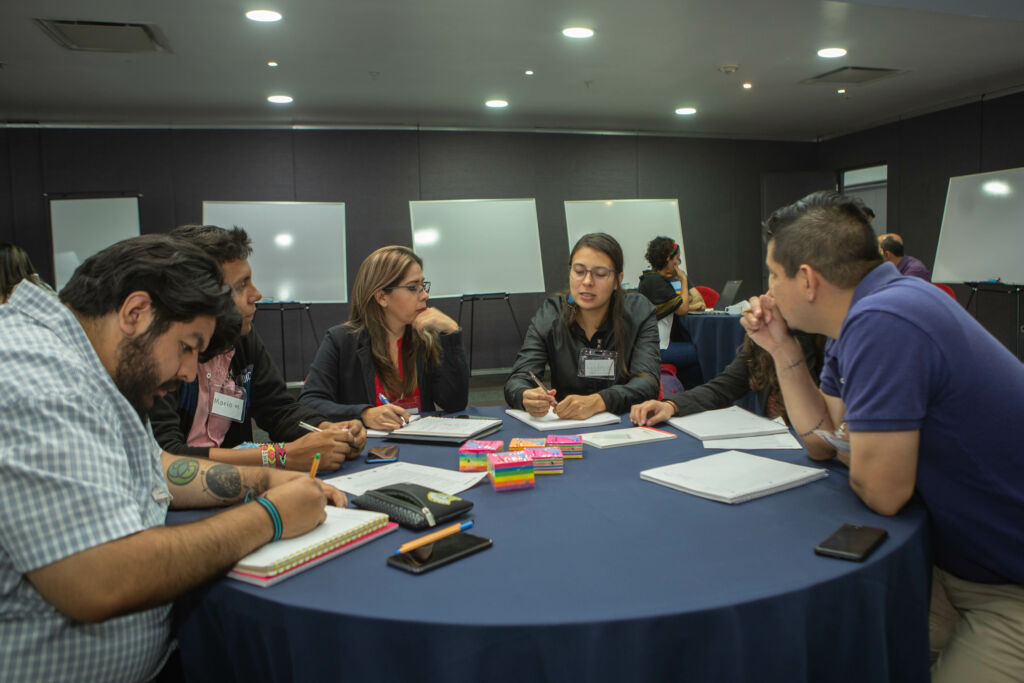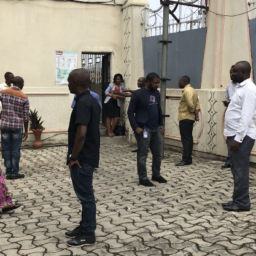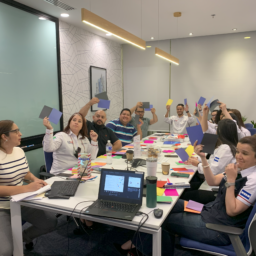
LINC is proud to share that our Consortium, led by the Philippines-based Gerry Roxas Foundation, has been awarded the new USAID-funded Communities of Practice for Effective Partnerships (COPE) Activity, which is designed to foster south-south cooperation and create a more structured avenue for organizations from Asia and Latin America to come together and use systems thinking to innovate, share, and learn while addressing local development challenges.
LINC will serve as a core resource partner to the activity, providing training, technical assistance, and capacity-strengthening on systems thinking, collective action, communities of practice, and monitoring and evaluation. COPE has a value of $2 million and will be implemented from 2022-2025.
“These awards will enable USAID and its partners to generate new knowledge, tools, and approaches that advance local leadership of development programs” USAID Press Release, 2023
The COPE Activity is one of six new research and development awards, totaling $8.8 million announced by USAID and co-created by USAID’s Local, Faith, and Transformative Partnerships (LFT) Hub with a range of local and traditionally underutilized partners, to support USAID’s commitment to locally-led development. USAID stated that “these awards will enable USAID and its partners to generate new knowledge, tools, and approaches that advance local leadership of development programs, in ways that meet local priorities, enhance local capacity and engage local actors as both producers and users of research findings.”
The COPE Technical Approach
COPE’s key research question is “can the communities of practice of local organizations be an effective and efficient platform for USAID to engage directly with local actors and communities in their journey to self-reliance?” Over the next three years, LINC and our partners will:
- Build a community of practice: formalizing a gathering of organizations from Asia and Latin America for a more organized way of growing and learning from and with each other on systems thinking in different socio-cultural contexts.
- Build digital infrastructures for collaboration: leveraging technology to facilitate collaboration; allowing on-demand access to knowledge to partners.
- Build a robust monitoring and evaluation system: promoting collaboration, learning, and adapting.
- Promote capacity development: supporting individual and collective capacity development to address complex, transboundary, and cross-cutting issues.
- Launch demonstration projects: showing the organizational capacity to utilize systems thinking, the benefits of systems thinking as a technical approach, and the value of a community of practice in locally-led development.
Stemmed from the LINC-led Local Systems Practice Activity

The decision of the organizations to come together and build COPE stemmed from the USAID/Local Works funded research activity Local Systems Practice (LSP), which LINC led from 2017-2020.
LSP assisted USAID Missions and local actors to use systems-based approaches to address complex development challenges. Under LSP, LINC provided training on systems thinking and tools to 25 organizations from nine countries across Asia and Latin America and developed the practical Local Systems User’s Guide.
In a follow-up survey conducted 6-months after the end of the last training session 97% of training participants report that systems thinking was useful or very useful for their work; 100% of training participants felt more able to design and implement solutions to local development challenges; and 95% of training participants had used at least one of the systems thinking methods from the training in their organization/projects.
For more information on this activity, please contact LINC’s Technical Director, Meghan Bolden at mbolden@linclocal.org.
This article was authored by Stephanie Lacouture.


